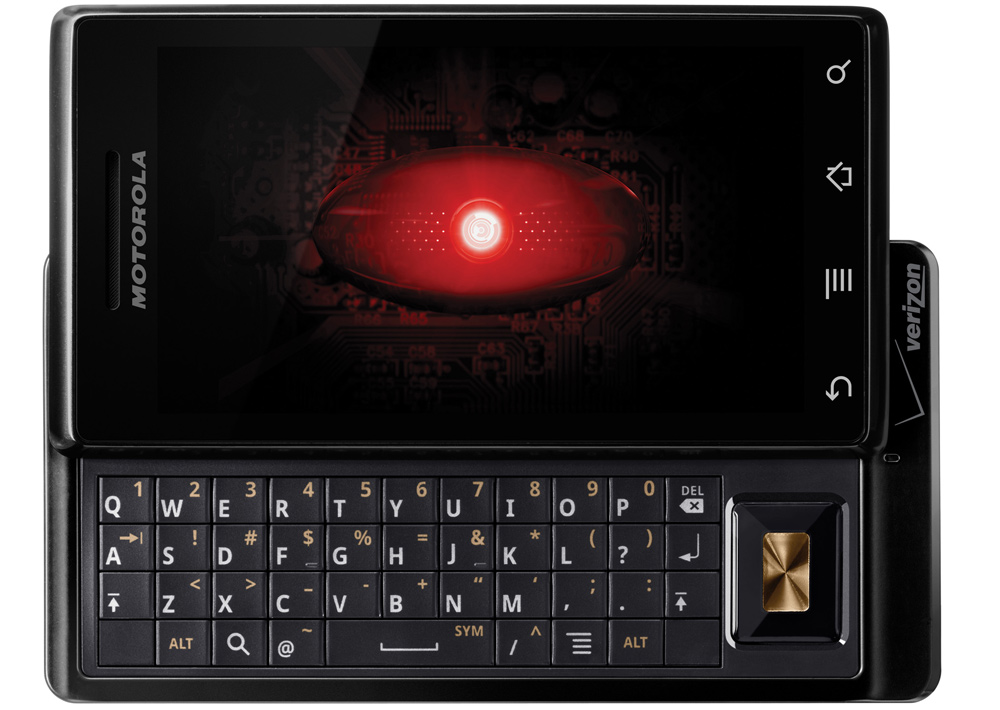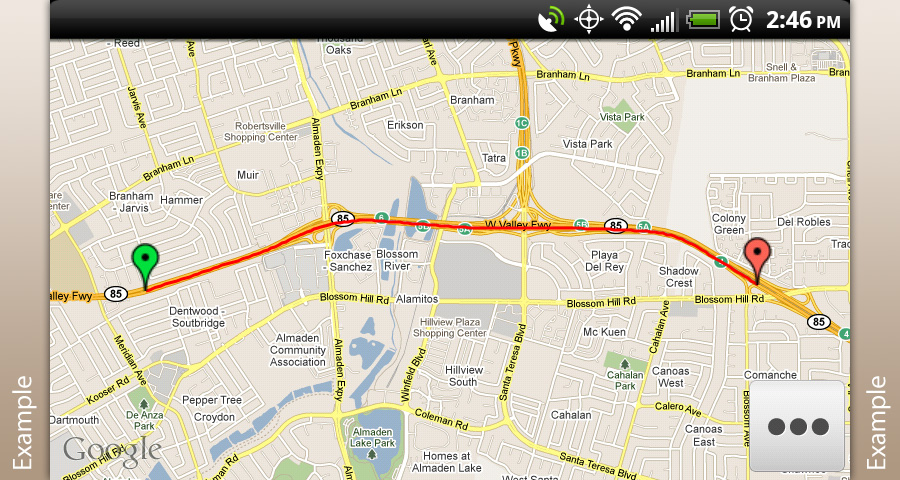How My Smart Phone Got Me Out Of A Speeding Ticket In Traffic Court

Last year a traffic cop pulled me over while driving home and handed me a speeding ticket. Although nervous and somewhat startled since it was my first time getting caught, I ended up walking out of traffic court a few months later without having to pay a fine or adding a single point to my record. Surprisingly, it was all thanks to my Android-powered smart phone and a little creativity.
My First Speeding Ticket
As a brand new Motorola Droid owner, I was in the rush of trying just about every app that appeared in the Android Marketplace. One that particularly stood out and had me excited was My Tracks by Google. This free app records and visualizes your GPS data on a map, which is something I always wanted to try. I began using app while jogging, biking to class, and even when driving.
I fortunately happened to have Google Tracks running when an officer cited me for speeding while I was heading back home from a friend’s place. The speed limit in the area was a mere 25 miles per hour and the cop’s radar gun shockingly clocked me driving over 40 miles per hour. In a panicked mental state, I simply handed over my driver’s license, insurance, and registration information without asking any questions. I was confident that I was within the posted speed limit in the back of my mind, but I just apologized and went my way instead of speaking up.

Once I parked my car in the apartment lot, I immediately realized that I had Google Tracks running as a background process as I reached to grab my phone from the dashboard mount. As I walked in, I pulled up my history for the previous session which displays information such as distance, average speed, average moving speed, and max speed. It even stores maximum and minimum elevation levels for those that need it. More importantly, I found that my phone only recorded a top speed of just 26 miles per hour, significantly lower than the cited speed. I now knew I was not speeding.
Traffic Court or Traffic School
After heading to the Yolo County (California) Traffic Court website and doing some research I found that I had two options: traffic court or a fine with traffic school. Most friends and family suggested paying the fines and avoiding traffic court since it is usually impossible to win. I unfortunately did not have the cash to spare or time for traffic school with a busy college schedule. I soon decided to take my chances in traffic court, which would take place over six months down the road.
I decided to write down an account of the entire situation just a few days later and even exported the data from my phone to Google Docs so I would not lose or forget any important details. I even came across an ongoing Sonoma County Superior Court case regarding the accuracy of GPS devices and radar guns. I saved a few articles to back my claim that my account of the situation was debatable with the evidence from my smart phone.
Time For Traffic Court
Once I made my way into the court room after going through metal detectors, I had to sign a document to indicate whether I plea guilty or not guilty. I choose the latter and got seated. The judge called a few people to the stand before it was my turn. Most of them were wearing rugged clothing, screamed out loud a several times, uttered inappropriate language, and were extremely enraged. Each case resulted in a guilty verdict, which had me even more terrified.
I eventually took the stand nervously. The plaintiff presented information from city plans noting that my speed limit was inappropriate for the area. When it was my turn to make a statement, I remained calm and spoke respectfully. I was also glad that I wore business casual clothing, which always plays an important role in situations such as this one.
My Geeky Evidence

Taking hints from a lawyer that spoke on behalf of a defendant shortly before me, I decided to ask the officer a few questions about the day he cited me. It turned out that the officer did not recall the last time he attended radar gun training, when the device was last calibrated, or the unit’s model number. I then presented my time stamped GPS data with details about my average moving speed and maximum speed during my short drive home. Both numbers were well within the posted speed limits.
I also made it clear to the judge that I had no other prior driving records or violations. After a lengthy pause, the judge asked how I obtained the GPS tracking information. I provided a detailed explanation about my new awesome smart phone, the application in use, and how I exported the data. After questioning whether the data was reliable, I mentioned the in progress Sonoma County Superior Court trial regarding the same matter about the credibility of both technologies.
The Big Verdict
The judge took a moment and declared that I was not guilty, but he had an unusual statement that followed. To avoid any misinterpretations about his ruling, he chose to clarify his decision by citing the lack of evidence on the officer’s part. He mentioned that he was not familiar enough with GPS technology to make a decision based on my evidence, but I can’t help but imagine that it was an important factor.
What You Should Know
Before anyone goes out to try their luck with my story, I should make a few things clear. I have no legal experience what so ever. I also would like to also note that the purpose of this article is to focus on smart phone technology and issues with radar guns. The officer in question was doing his job and did not do anything wrong. I find that internet culture often likes to demonize misbehaving cops, which I hate hearing about. It is important to respect the men and women who put their lives on the line to keep our streets safe every day. With that being said, I hope that this article will be helpful to anyone who was wrongly accused due to inaccurate information from radar guns, which are rather complicated to operate compared to consumer friendly smart phones.